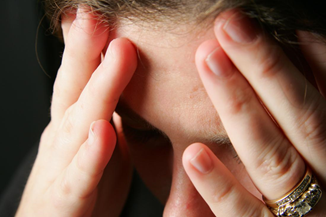Tinnitus Due To Brain Injury
Nearly 15 percent of all Virginians suffer a diminished quality of life due to a persistent ringing in their ears known as tinnitus. Based on the Centers for Disease Control and Prevention statistics, more than 50 million Americans deal with some level of tinnitus, and about 2 million Americans suffer from debilitating cases of it.
Although many people believe that tinnitus is caused exclusively by exposure to loud noises, research by the National Institutes of Health indicates that head, neck, and ear trauma may also result in tinnitus. If you have sustained a hard impact from an automobile collision, slip, fall, or another type of brain-related trauma, this may lead to tinnitus.
If you or someone you know is suffering from tinnitus due to someone else’s negligence, you may be entitled to compensation for your injury. Contact Cantor Grana Bucker Bucci today for a free consultation.
What Victims Need To Know About Tinnitus
Soundwaves apply pressure to the tiny hairs within the ear ebb and flow to maintain a healthy balance. This function prompts the hair cells to send an electrical pulse to the brain. The brain, in turn, deciphers these signals as the everyday sounds you experience. When something disrupts the free movement and processing of soundwaves in the inner ear, it can disturb the ability to interpret them.
When those hair cells or the surrounding nerves are damaged, random electrical impulses leak, and your brain experiences a sound that is not occurring. The muddied, sometimes high-pitched sound is a phantom that grates daily.

Common Causes of Tinnitus
Noise-Induced Hearing Loss
Tinnitus has deep roots in work-related causes. Heavy equipment operators, truck drivers, construction workers, and those working in high-volume sound industries are likely candidates to suffer this condition. Short-term causes can include attending a loud concert.
Age-Related
It’s not uncommon for Virginians to begin noticing naturally occurring hearing loss at about 60 years old. This condition is called “presbycusis” and may cause tinnitus.
Bone Shifts
Conditions such as otosclerosis may result in abnormal bone formations around the ear canal. These are typically hereditary.
Acoustic Neuroma
Benign tumors can develop along the cranial nerve that runs from your brain to the inner ear. This nerve regulates hearing balance and usually causes tinnitus in only one ear.
Eustachian Tube Dysfunction
Sudden dramatic weight loss, radiation treatments, and pregnancy may cause this condition. This results in the inner ear tube remaining fully dilated at all times.
Muscle Spasms
When the muscles in the inner canal flex and relax uncontrollably, sufferers experience tinnitus, hearing loss, and the sense that their ear is full. This may be attributed to sudden jerking of the neck or a hard impact, among other causes.
Head or Neck Injuries
A neck injury such as whiplash, hard impacts to the head, and other trauma can damage the auditory nerve and brain functions that facilitate clear hearing. Victims may suffer ringing in the ears after head trauma in one or both ears as a result.

Somatic Tinnitus
Tinnitus caused by bone damage or other structures is known as somatic tinnitus. This type of tinnitus can be very debilitating, making it difficult to concentrate or sleep.
Can a Concussion Cause Tinnitus?
Yes, a concussion can most definitely cause tinnitus. Any mild traumatic brain injury can lead to tinnitus. When the head is suddenly and forcefully jarred, it causes the brain to bounce around or twist inside the skull. This can damage the delicate cells in the brain and result in tinnitus.
Tinnitus is not only a symptom of concussion but can also be caused by other head injuries such as skull fractures and whiplash.
How To Know If You Suffer Tinnitus After Brain Injury
There are a few ways to know if you suffer from tinnitus after a brain injury. The first is if you have noises in your ears that persist even when there is no external sound present. These sounds include:
- Ringing
- Buzzing
- Roaring
- Humming
- Hissing
- Clicking
The second sign is if this noise disrupts your ability to concentrate or sleep. If you are experiencing these tinnitus symptoms, you are likely suffering from tinnitus after brain injury.
Long-Term Complications of Tinnitus
For most patients, tinnitus is temporary, but for some, it is permanent. If you are diagnosed with chronic tinnitus, there are other significant health and wellness to consider as well. The inability to manage other conditions can contribute to a negative impact on your mental health and well-being.
Tinnitus patients often suffer:
- Fatigue
- Stress and anxiety
- Memory loss
- Irritability
- Sleeplessness
- Headaches
- Lack of concentration
- Depression
The best way to ensure you secure the compensation you deserve is to get a diagnosis supporting the condition’s origin.
How Tinnitus is Diagnosed
The diagnosis of tinnitus after a mild brain injury is often a diagnosis of exclusion. In such situations, the patient may show no abnormalities in audiological testing, including an audiogram (a measure of hearing) or a tympanogram (a measure of eardrum function).
Treating Tinnitus After a Head Injury
There is no one-size-fits-all treatment for tinnitus. However, there are a few things that you can do to manage your symptoms.
- Avoid loud noise – this can worsen your tinnitus.
- Reduce stress and anxiety – these can also trigger or worsen your symptoms.
- Change medications – Certain critical medications intensify tinnitus, such as antibiotics, antidepressants, cancer treatments, and aspirin. If you are taking medications that may be contributing to your tinnitus, your doctor may be able to adjust your dosage or switch you to a different medication.
- Masking – In some cases, people with severe tinnitus may wear a hearing aid to help mask tinnitus noise.
Other Treatments
Other treatments may reduce tinnitus severity.
- Cognitive-behavioral therapy – can help you manage the stress and anxiety that can worsen your symptoms.
- Sound therapy – uses sounds to help mask the noise of tinnitus
- Surgery – may be recommended to repair any damage that has been done to the inner ear.
How Long Does Tinnitus Last After Brain Injuries?
Tinnitus after brain injury can last for weeks, months, or even years. If your tinnitus is causing a lot of distress or disrupts your ability to function normally, you should seek treatment from a doctor.

How to Recover Compensation for Tinnitus After a Brain Injury
Getting full fair compensation for tinnitus that results from a hard impact or brain injury can be challenging without an experienced and determined attorney. However, a proactive Virginia tinnitus lawyer with brain injury experience can put forward a powerful case on your behalf with a diagnosis in hand.
Our trial lawyers develop evidence to demonstrate the tinnitus for the jury and the devastation it causes the client. In several of our cases, we have had an audiologist measure our clients’ tinnitus frequency and loudness and reproduce and record the sound.
There is no substitute for playing the sound of the client’s tinnitus for the jury. Once the jurors can hear what the client has to live with, they are much more receptive to testimony from the client and their witnesses about how annoying and disruptive the tinnitus is on the client’s life.
Contact A Virginia Traumatic Brain Injury Attorney
At Cantor Grana Buckner Bucci, we have a team of well-trained injury lawyers in Richmond who have secured some of the largest verdicts in the state—dealing with tinnitus after brain injury? Contact our firm, and we’ll discuss your situation and let you know how we can help. Call for a free consultation today at (855) 936-1747.









